Manyverse
Manyverse is a decentralized, peer-to-peer social network that allows users to connect with others nearby to chat, share content, and more without relying on central servers. It works by connecting directly to other phones and computers over Wi-Fi, Bluetooth, and internet protoco
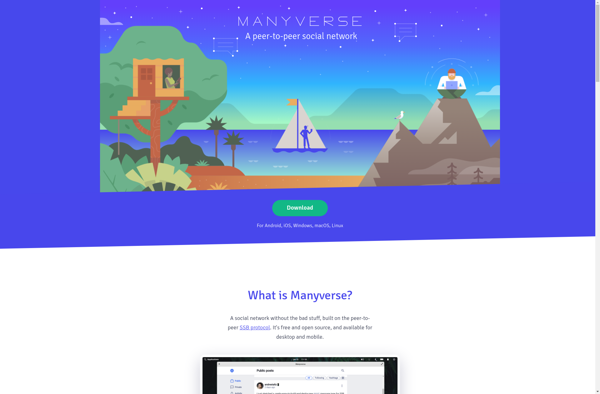
Manyverse: Decentralized Social Network
Connect with others nearby without central servers, using peer-to-peer technology for chat, content sharing, and more over Wi-Fi, Bluetooth, and internet protocols.
What is Manyverse?
Manyverse is a decentralized, peer-to-peer social networking application for Android and desktop operating systems. It allows users to connect with others nearby to chat, share content, and more without relying on central servers.
Here are some key features of Manyverse:
- Decentralized architecture - Data is stored and shared between users' devices directly via Wi-Fi, Bluetooth, and internet protocols instead of centralized servers. This enhances privacy.
- Peer-to-peer connections - Users can connect directly with others nearby via Wi-Fi and Bluetooth for fast sharing. Manyverse can also connect more globally over the internet.
- Encrypted communications - All messages, posts, and data shared are end-to-end encrypted for security.
- Open source - Manyverse is open source, allowing community contribution and transparency.
- Cross-platform - Manyverse works on both mobile (Android) and desktop platforms so users can access their social network from multiple devices.
- Offline functionality - Users can still read previously downloaded content and write new posts/messages even without an internet connection. Content syncs when back online.
Overall, Manyverse aims to provide an alternative decentralized, peer-to-peer social networking experience focused on security, privacy, and accessibility without centralized servers.
Manyverse Features
Features
- Decentralized social network
- Peer-to-peer connections
- Chat with nearby users
- Share content locally
- Works offline
Pricing
- Open Source
Pros
No central servers
Preserves privacy
Harder to censor
Works offline
Cons
Limited user base
Technical complexity
Harder to monetize
Less content discovery
Official Links
Reviews & Ratings
Login to ReviewThe Best Manyverse Alternatives
Top Social & Communications and Decentralized Social Networks and other similar apps like Manyverse
Facebook is a popular social networking platform launched in 2004. It allows users to connect with friends, family, coworkers, and people with shared interests. As of 2022, Facebook has over 2.9 billion monthly active users worldwide.Some key features of Facebook include:News Feed - See updates from friends in real-timeProfile -...
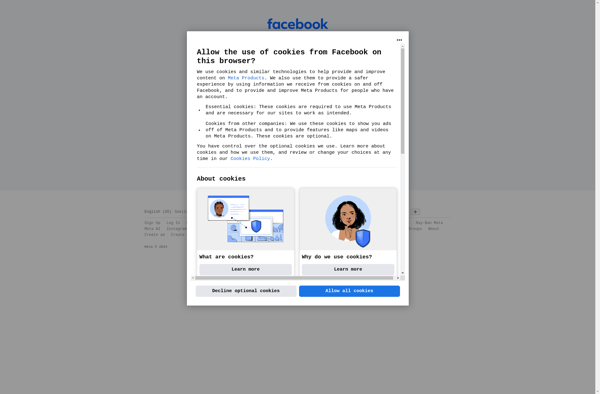
Gab
Gab is a social networking website launched in 2016 that bills itself as a free speech alternative to mainstream platforms like Twitter and Facebook. It has become popular among some conservative, alt-right, and far-right users who feel their views are censored on other sites.Gab's key features include:Minimal content moderation -...
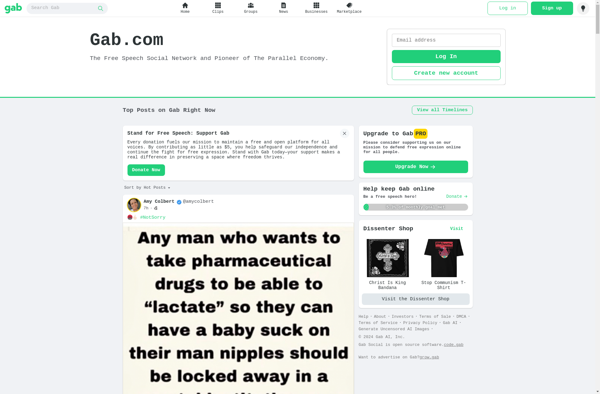
Mastodon
Mastodon is an open-source, decentralized social networking platform launched in 2016. It operates as an alternative to commercial platforms like Twitter or Facebook by allowing a federated network of independently operated servers to exchange posts between one another.Rather than having a single central authority like Twitter or Facebook, Mastodon servers...
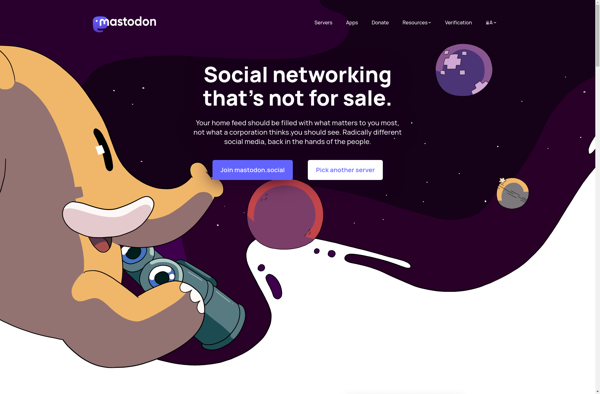
Minds
Minds is an open-source, privacy-focused social networking platform launched in 2015. It emphasizes free speech and does not censor or filter content posted by users, except in cases of illegal content.Some key features of Minds include:Encryption - Content and conversations are encrypted for privacy.Anonymity - Users can browse anonymously without...
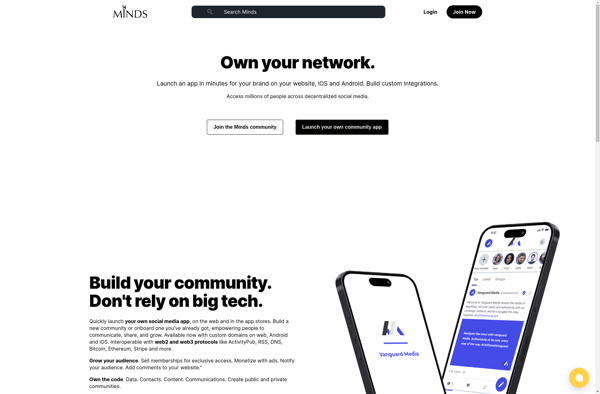
Diaspora
Diaspora is a decentralized, open source social networking platform launched in 2010. It emphasizes user privacy and control over data sharing.As a decentralized network, Diaspora allows users to host their profile and data on independently run servers called pods. This avoids a central entity having control over the network. Pods...

ZeroMe
ZeroMe is an open-source, decentralized platform for hosting web applications and static websites using peer-to-peer technology. It allows users to create censorship-resistant sites and apps that do not rely on centralized servers or domains. Instead, ZeroMe content is hosted across a distributed network of nodes run by volunteers.Some key features...
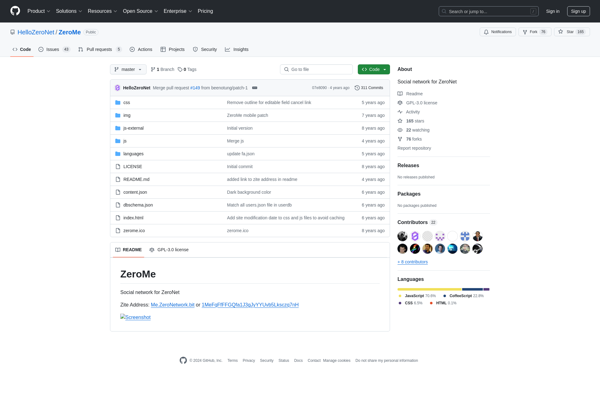
Friendica
Friendica is an open-source, decentralized social networking platform launched in 2010. It is designed to be privacy-focused and ad-free, allowing users to have more control over their information and data.Some key features of Friendica include:Federated - able to connect with users on other Friendica servers or compatible platforms like Mastodon...
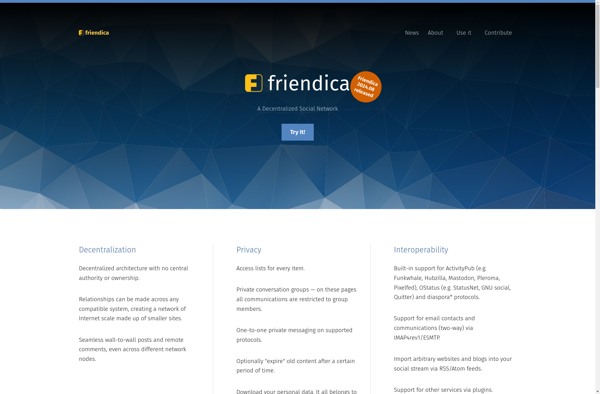
Pump.io
pump.io is an open source social networking and microblogging platform developed by Evan Prodromou. It is designed to give users control over their privacy and data while still allowing them to interact with others.Some key features of pump.io include:Activity Streams - pump.io is based on the Activity Streams standard for...

Pleroma
Pleroma is an open-source, federated social networking platform built on ActivityPub. It is written in Elixir and can be self-hosted as an alternative to large corporate social media platforms.Some key features and characteristics of Pleroma:Designed to be lightweight and fast while still being feature-richFully supports federation using the ActivityPub protocol...

GNU social
GNU social is a free, decentralized and open source social networking platform developed as part of the GNU Project. It allows users to control their own data and privacy instead of having it stored on corporate servers.Some key features of GNU social include:Decentralized federated structure - users can set up...
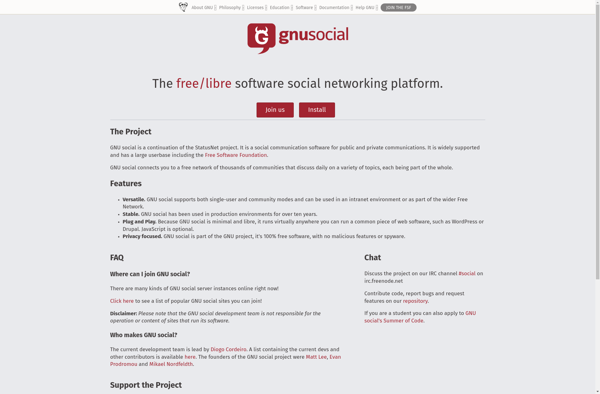
Linksoutside
Linksoutside is a cloud-based link management and sharing platform designed for teams and organizations. It provides a central place to store, organize, manage, and track all your links.Key features include:Link organizing with tags, lists, and foldersTeam collaboration tools like shared link lists and permissionsLink analytics to see which links are...
